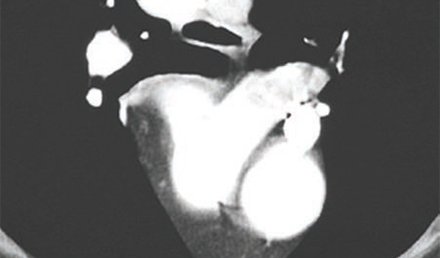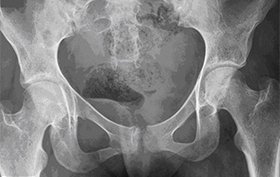Beware of Eyewitness Accounts of Syncope or Seizures Key point: Bystanders’ descriptions of acute neurologic events often are simply wrong. Citation: Thijs RD, Wagenaar WA, Middelkoop HAM, et al. Transient loss of consciousness through the eyes of a witness. Neurology. 2008; 71: 1713-1718. Diagnosis of sudden catastrophic illness depends a good deal on eyewitness accounts. But, as criminologists know, eyewitnesses can be unreliable. Now, a team of neurologists in the Netherlands has reconfirmed this finding. …
Read MoreEvaluation and Management of Lower Extremity Edema
Urgent message: The high specificity but broad range of possible causes associated with a primary complaint of lower extremity edema poses a particular challenge to the urgent care clinician. Proper assessment of the differential diagnoses is the first step toward optimal outcomes, whether they be facilitated by treatment or referral. Michael S. Miller, DO Patients presenting to urgent care with a primary complaint of edema of the lower extremities of any duration can pose a …
Read MoreBeware the BFRF!
John Shufeldt, MD, JD, MBA, FACEP Remember the scene in Ghostbusters when Gozer (the Gozarian) asks Ray Stantz if he is a “god?” Stantz, compulsively honest, says, “No.” Gozer says, “Then die,” as he tries to blow them off the roof of the building. After recovering, Peter Venkman yells at Stantz, “If someone asks if you are a god, you say YES!” The question Gozer asked Stantz was a red flag – one of those …
Read More
An Introduction to Urgent Care Advertising
Urgent message: Unlike many other practice models, urgent care must appeal directly to the customer to stay “top of mind” and be the first option the patient considers when a need arises. Alan A. Ayers, MBA, MAcc Urgent care is a healthcare delivery channel built around the needs of consumers – “retail,” from a marketing perspective – with convenient locations, evening and weekend hours, walk-in service, the capability to treat a range of illness or …
Read More
A Patient with Suspected Pulmonary Embolism
Urgent message: High degree of suspicion combined with thorough history and proper use of available tests can help the clinician identify patients in need of emergent referral. John Shufeldt, MD, JD, MBA, FACEP and Kelli Hickle Introduction A 47-year-old woman with a diagnosis of ovarian cancer developed an acute onset of mild shortness of breath two days after being discharged for a work-up of symptomatic ascites. Her medical history was significant for obesity and recent …
Read MoreUrgent Care Without a Paddle
Economy getting you down. Feeling like you’re up the veritable creek. Whether you’re an owner, manager, or practitioner, if you’re not feeling the heat, you should be. That’s not to say you should get out of the kitchen; just be a better chef. There has never been a crisis in history that did not create great opportunity for those who know how to find it. During a crisis of any kind, two classes of people …
Read MoreMarch 2009
Developing Data: March, 2009
In early 2008, UCA revamped its annual survey in conjunction with researchers at Massachusetts General Hospital and Harvard University with the goal of assuring that the UCA Benchmarking Committee’s efforts produced a scientifically valid report. Over the coming months in Developing Data, JUCM will present some of the findings from this landmark survey, to which 436 urgent care centers responded. In this issue: How deeply is urgent care integrated within the larger U.S. healthcare system? …
Read MoreClinical Challenge: March, 2009
The patient is a 29-year-old white male who presented three weeks after returning from a camping trip, during which he removed three ticks from his chest and back after being bitten. He reports a one-week history of fever, fatigue, hot and cold spells, and arthralgia, and a one-day history of popular rash on the dorsum of his feet (Figure 1 and Figure 2).
Read More
16-year-old girl receives blow to her hip
The patient is a 16-year-old girl who received a blow to the right hip when she fell in her bathroom at home. She is able to ambulate, albeit with great pain and guarding of her right leg. Her vital signs are stable. View the x-ray taken and consider what your diagnosis and next steps would be.
Read More